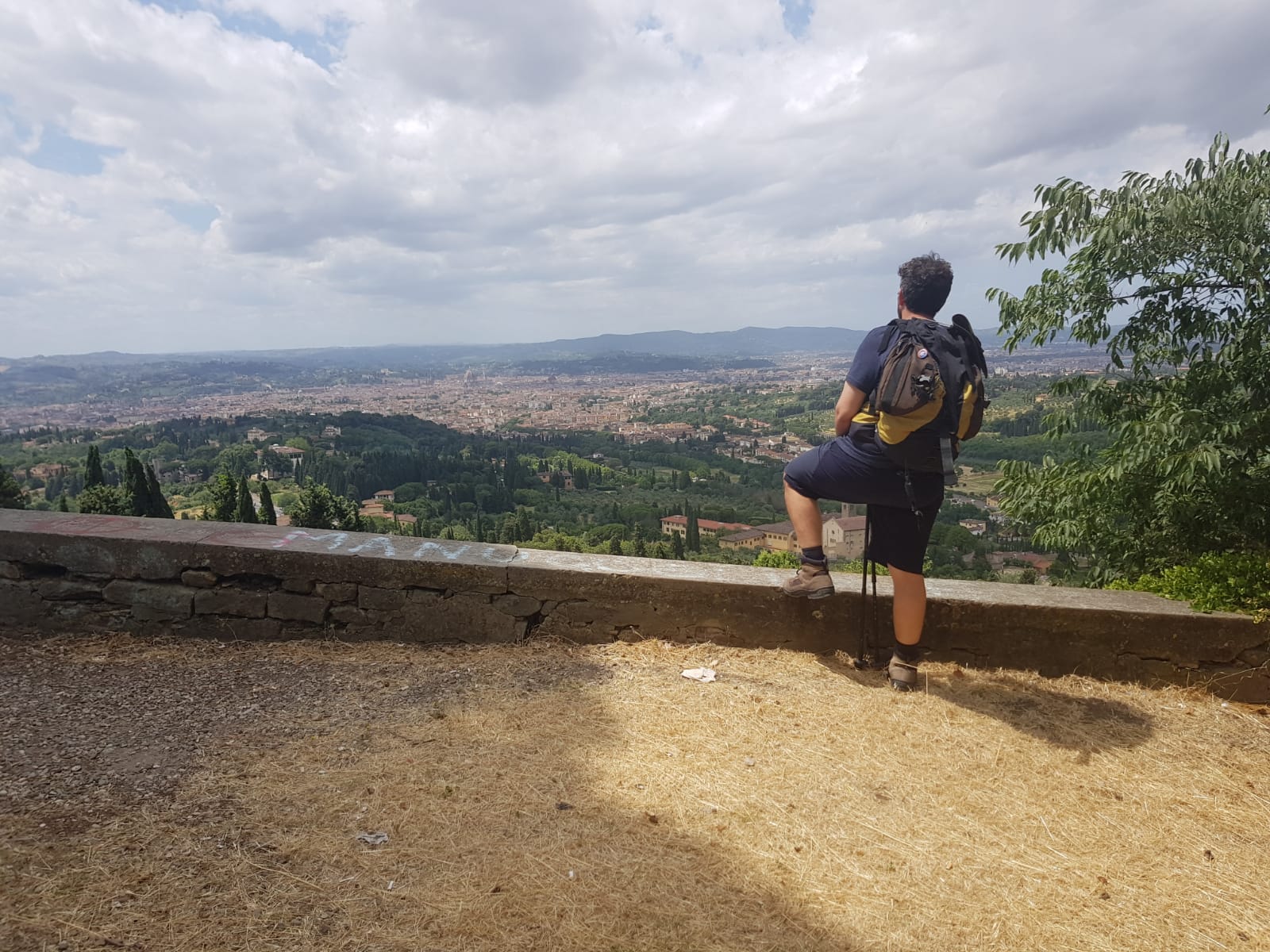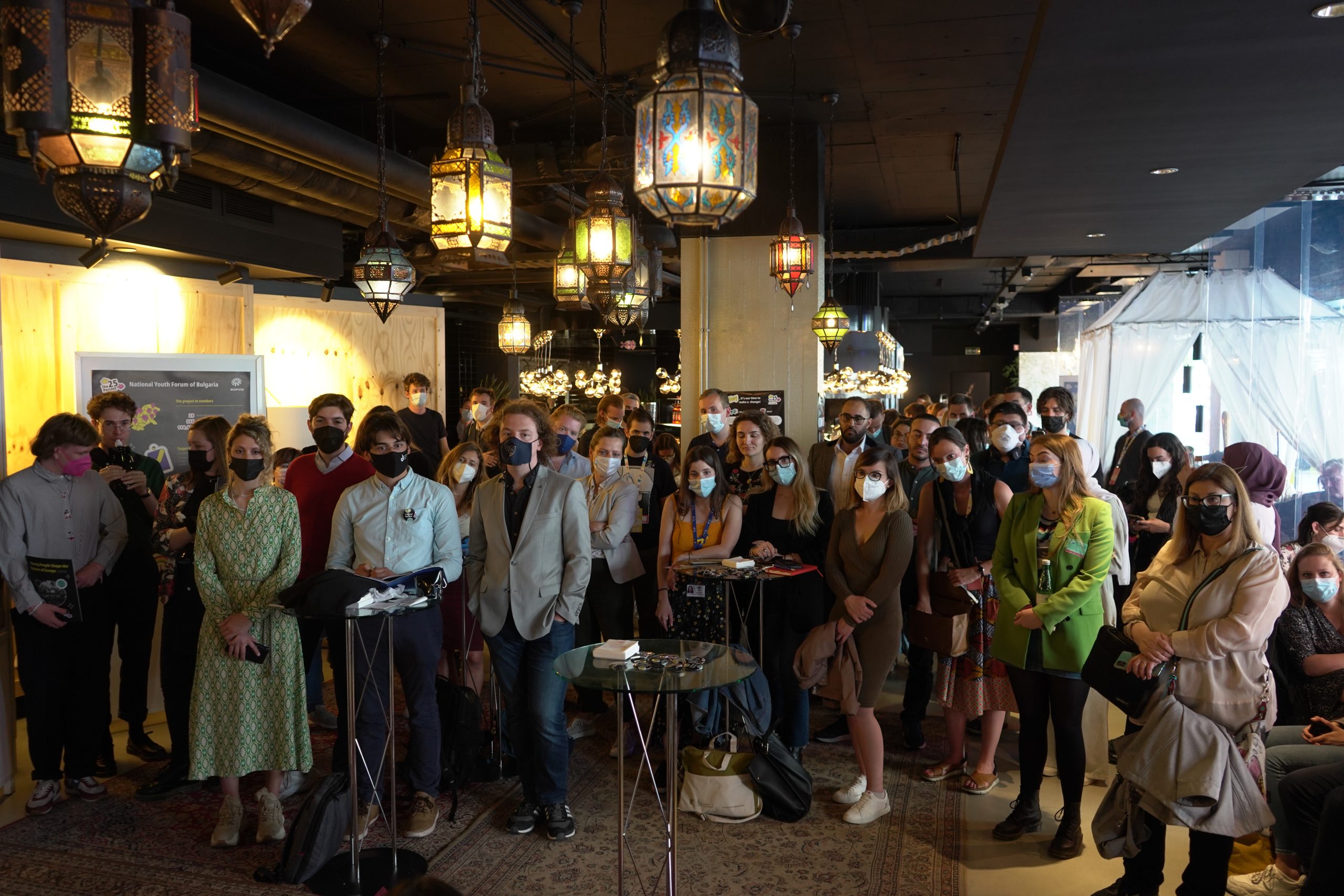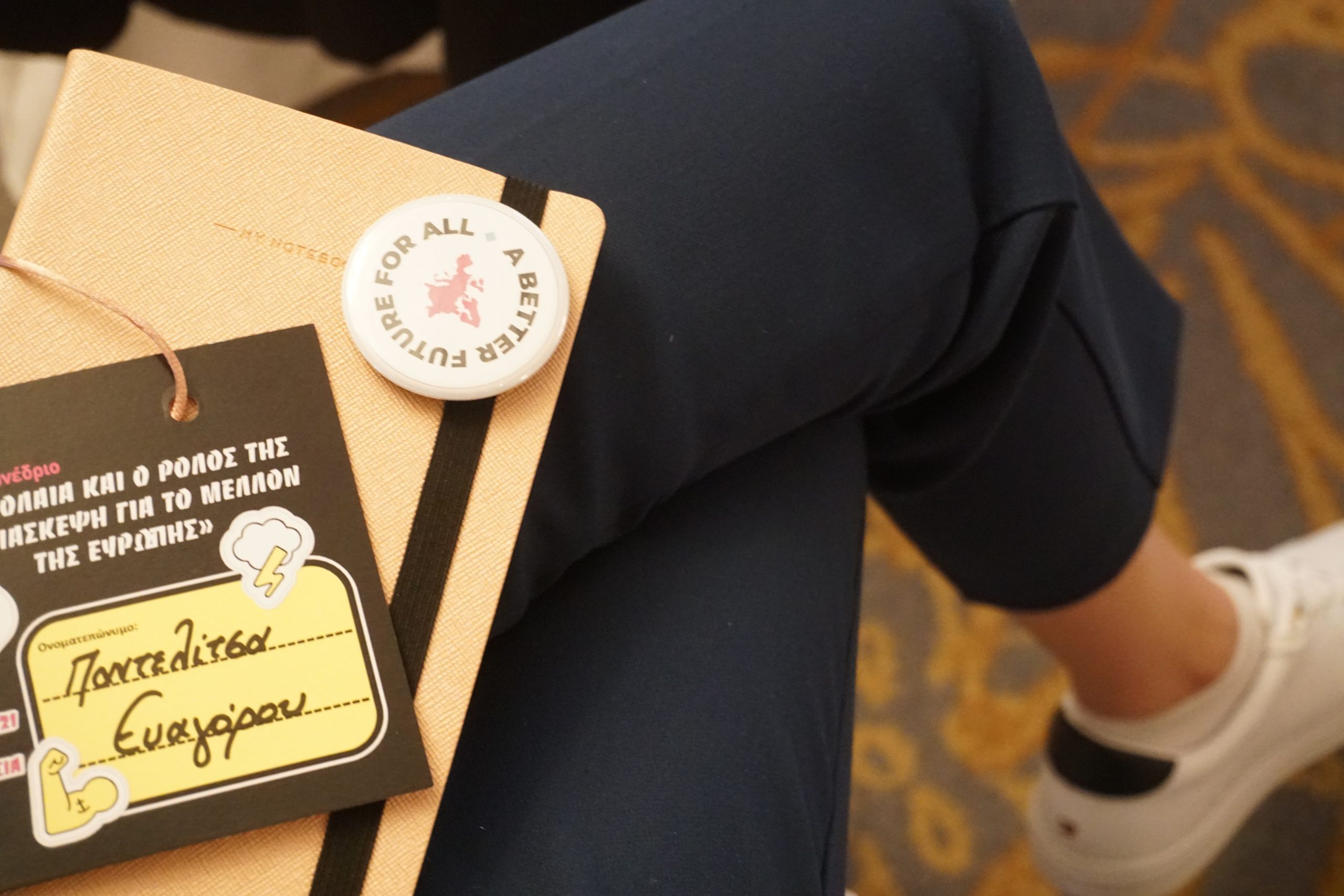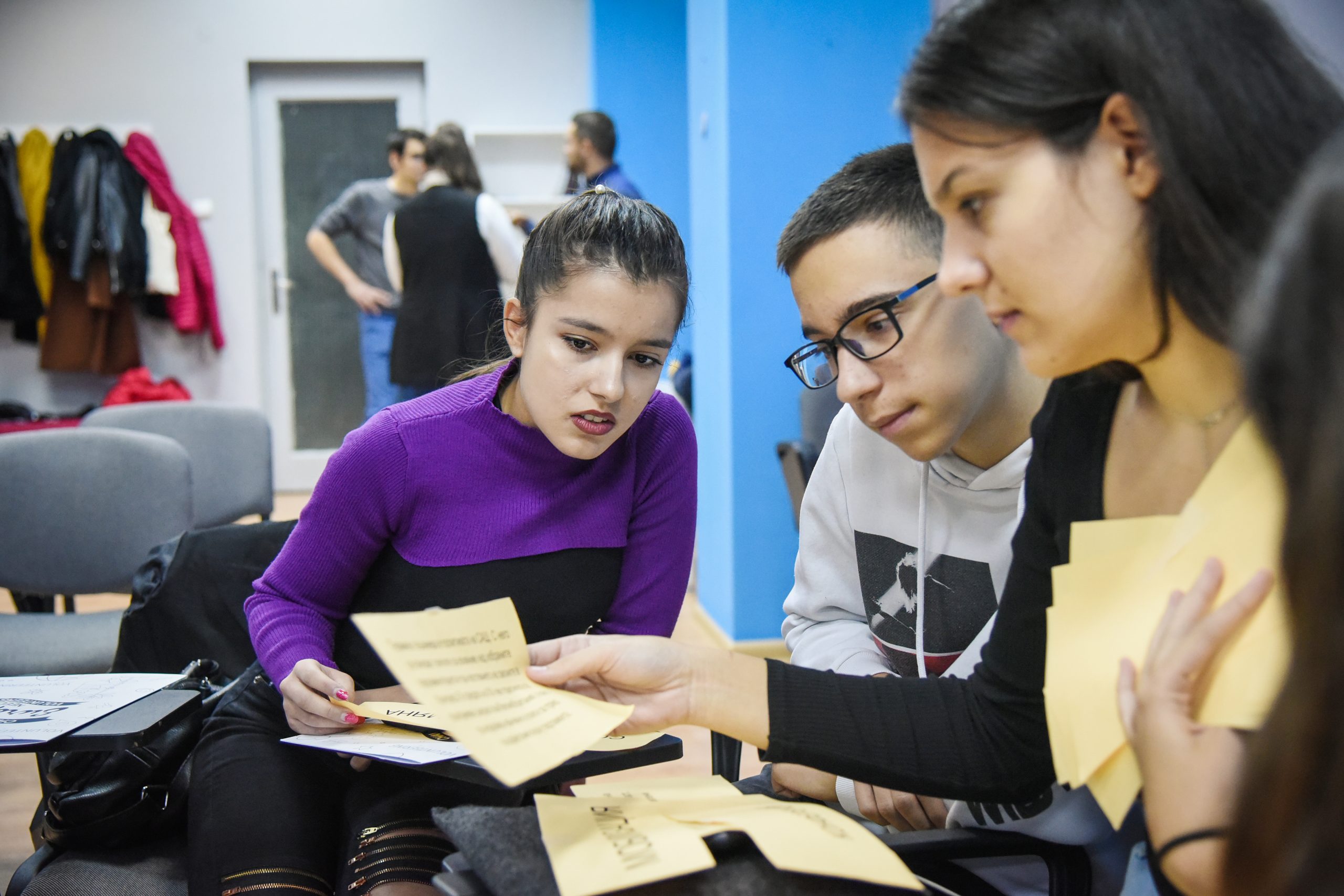Damiano Censi – Imagining Sisyphus happy
Today we meet Damiano, a recently graduated PhD in Law and Economics, currently based in Bologna. Damiano started being an activist when he was a teenager, and despite being a working student, he always managed to keep his activism on, because as he said “you always find the time to be happy”.
Q. Hi Damiano, happy to see you here! Where are you right now?
In Bologna, I just defended my PhD thesis in European Economic Governance, at the crossroads of law and economics. What I have researched in these years is deeply connected to my activism, or, as I call it, “what I do in my free time”.
Q. Cool! Tell us more about your free time!
At the moment I am very busy with local politics! A group of 15-20 people and I in Cesena, my hometown, have founded a party and we run for the last elections. We managed to elect some people in the Neighbourhood Councils. These councils have an important role in deciding how the spaces should be allocated, used, for which purposes etc., then they can discuss and propose other projects for the neighbourhood. I am also a long time volunteer for Libera, an association fighting mafia on the ground and I am also involved with Mediterranea – a non governmental action – which has a boat patrolling the Mediterranean to help people in need.
Q. And this is not everything, because I know you are also involved in a project to fight poverty. We will talk about all of this, but first I wanted to ask: was it difficult to create a party?
Yes! Very difficult! I mean, the most difficult thing was to start, to believe that it was something possible. That was the hardest part because there were simpler solutions, like joining an existing party. Instead, we thought that at the local level it was possible to input new ideas and especially change the age of the people normally involved in established politics. Once we found the vision, everything else was very easy. So, the most important thing was to find a political vision.
Q. What is your political vision?
Our idea is openness: to open up our city to everyone. To reduce the division between people with social and economic possibilities and the people without. We wanted the city hall to be open to homeless people, to people without ID cards, and we wanted our city to be open internationally, and on the forefront to fight climate change. At the local level, if you have strong ideas and social media, it is easy to be known. For example, now journalists contact us if they want to hear the position of the not established parties on an issue. So, we are very happy with the results!
Q. That is amazing Damiano, you are reshaping the city from the bottom-up, including marginalised communities into the city life! You also mentioned Libera, an association fighting the mafia on the ground. What is this? How did you get involved?
My experience was similar to the one I had with political engagement. It is difficult to start, but once you find your vision, things are easier. I participated in a camp organised by Libera a few years ago. I went to Corleone to support the work of a cooperative called Lavoro e non solo, which is an agricultural social enterprise employing people with disabilities. The land they work on once belonged to mafia bosses. In Italy, we have a law stating that assets belonging to mafia and mafiosi, once seized by the state, can be used for social projects promoting the public good. In Corleone, at the camp, I worked in the countryside during the morning and in the afternoon we learned about the history of the fight against the mafia, met activists and visited significant places like the house of Peppino Impastato. Libera was founded by Don Ciotti, a Catholic priest, and they do direct activism by supporting local cooperatives or social enterprises using the assets and business once belonging to the mafia. Then, they organise indirect activism: for example, every year they gather in a city to read out loud all the names of the victims of mafia to the day. Then they advocate to make sure that our laws are fit to fight the mafia, not only from the penal law point of view, but also to speed up the process of seizing assets from criminals, to use them for the common good. This kick-starts a clean economy and improves the conditions of everyone.
Q. I see a banner behind you, the flag of Mediterranea, would you like to tell us more about that?
I am just a member of the local group, I never went out on the sea myself, however, Mediterranea has bought a boat, Mar Ionio, and the boat patrols the Mediterranean sea. Basically, if there is a boat with migrants in danger, the crew calls the Italian coordination to send military or civil boats in the area to help. If they cannot, Mar Ionio does the rescue. This is our primary activity: to help people not to die in the sea. Part of our global activism is also to have a local “crew” in different cities and I am part of one of these groups. The local crews do fundraising to support the boat, as Mediterranea does not receive money from anyone. We also sensibilise people: for example, we have organised a reading in Bologna where two volunteer actors have read in public the last messages sent from sinking boats by migrants to their families and what those who survived felt once they have arrived in Italy or in Germany, France or England. Then we discussed with the public, as many people think that migrants should not come at all. We need to speak with these people: it is normal to have fears, as the socio-economic situation in Italy has worsened. But these problems, as well as their solutions, are not related to migrants. We cannot fear them, we need to help them and understand that we cannot pretend this has nothing to do with us. To sensibilize people is important because we need an Italian and European response to this emergency: it is not a boat of private people that will solve the problem.
Q. Sure, though it is good to see that, when the government action is paralised, there are people ready to step in. For the people who are saved it makes the difference between life and death. And there is another project you work on which makes the difference between life and death in your own city…
Covid-19 has increased the difference between the people who have a house and money to buy food and people who do not and live out of the social relations they have in the streets. We collected food, blankets, clothes, then we split the group into teams which were assigned a certain area of the city. Giving food and clothes was the first and less important step: we wanted to talk with the people living in the streets and have an exchange, interact with them as humans just coming together. We are all humans: you cannot pass in front of someone living in the streets and do not stop and ask “Do you need something?”. Once we have opened a dialogue, we tried to understand if we could connect them with social services, facilitate the interaction with social workers and make the system work for them. The human part for us was incredible: we created a group of friends, genuinely happy to see each other within or outside the project. After every meeting we felt happiness: we were filled with the hope to be able to help someone else to be happy as well. The key part here is to stop pretending that the problem does not exist, and do something to solve it: solutions are not out there, you have to create solutions. And this is something everyone, anywhere, can do.
Q. So, Damiano, just to recap: you founded a political party, you are involved in three different projects trying to solve issues related to mafia, migrants and homeless people. Then, you have a PhD, and I know that you worked to support your studies. Do you sleep sometimes? Do you know something we do not know?
No, there is no secret! We cannot think that what we do is a problem or a detriment for us. Once we feel that what we do is part of ourselves, the rest just follows. It is just by chance that we are not at their place: if someone has no food, it is me as well having no food. Then, I was really happy to do something to help out: it was fun, I was happy, and you always have the time to have fun and be happy.
Q. You said that starting is always the most difficult thing, if someone would like to start helping finding solutions, what would you suggest as advice?
We are not the first people in the world, most probably someone else has thought something similar or something else to change the system for the better. If there is someone active in your city, do learn from them, talk with them, help them, join them. If there is none, you can check what happens in other cities, learn from their experience, and contact them. And then you can bring this project to your city and then friends will join you. Beware: doing things, implementing things, is not difficult, especially if you can just “copy-paste” and then improve. The most difficult part is always the mental one: deciding to do something.
Q. Let me rephrase. If I were saying: “the collective dimension of your activity is huge, you do not do anything alone, but with your friends or people you have connected with. While we are in this atomised society where everyone is fending for themselves. Collectivism seems anthropologically outdated.” What would you say to me?
Well, our idea of collectivism is not only an idea, it is a need. We need other people, always. There are people everywhere, and everyone is looking for someone else. People have different ideas, and in every city there will be 1% of people trying to do something. Of this 1%, maybe only the 0,5% does something for real, and maybe 0.3% may do something not interesting for you, but then you will find someone. And then, if you do not want to go out or engage directly, you can help out via social media or similar things.
Q. Can I ask you why you do it? Isn’t it easier just to spend your evenings having fun and relaxing?
I do this because I studied what I studied: Law and Economics. I worked mostly on crises, and what I have concluded is that for every crisis the origin and the solution are always the same. When the number of people who do not have the possibility to live their lives and to contribute to our system is huge, our system cannot work anymore. And when this happens, nothing works for anyone, nor economically or socially. Here we have the crisis. If we do not solve these problems, well, first of all I cannot sleep: how can you sleep in your comfy bed when for example in Bologna there are 2000 people living on the streets? How can you enjoy your spritz in those same streets if you are not doing anything for them? Secondly, having studied what I studied, according to the Nobel prize Stiglitz, or Saskia Sassen, if the number of people who are excluded grows, eventually the system will melt down. There is only one way road. And we need to do something to reverse the process. Every person is a possibility to change the world and we cannot miss any.
Q. Thanks Damiano. I am very touched by what you said. See you another time soon?
Sure! With pleasure!
When I left Damiano, I realised that he has two qualities that many of us have lost. The first one is hope. It has been a long time since I last met someone who believed that something could change and that we could be part of that change, someone who did not think that things will eventually be taken care of by someone else, someone who took the risk of being disappointed and kept hoping for a better tomorrow.
The second one is lucidity. Damiano does not turn away from problems or pretend they do not exist.
Fact: there are people living in extreme poverty.
Fact: there are people dying at the doorstep of Europe.
Fact: there is an economic system creating poverty, exclusion and criminality around the world.
What Damiano does is not to think that this has nothing to do with him. Damiano allows these facts to put himself in crisis and question himself.
This is a problem keeping Damiano awake at night and that makes him go out and try to find solutions. You may think it is a drop in the ocean, but for some people it means the difference between life and death, between sleeping in the cold on a pavement or sleeping in a warm bed, between having some food or being hungry. And you know what?
All this work to make other people happy makes Damiano happy.
When I left him, a sentence from a book by Camus came to my mind. In The Myth of Sisyphus, Camus asks himself the question if life is worth living. Sisyphus is the main character of a Greek myth: since he fooled the Gods, he was condemned for eternity to bring a huge rock on the top of a hill, just to see it roll down once it reached the top and having to start again. However, Camus concludes: “The struggle itself toward the heights is enough to fill a man’s heart. One must imagine Sisyphus happy.” I wish I could be as happy as Damiano is.



